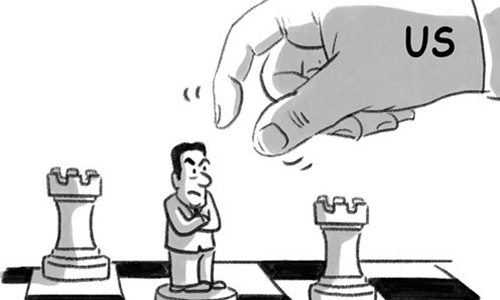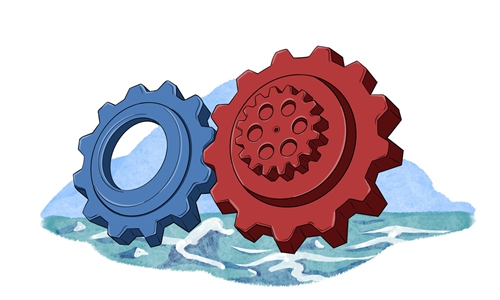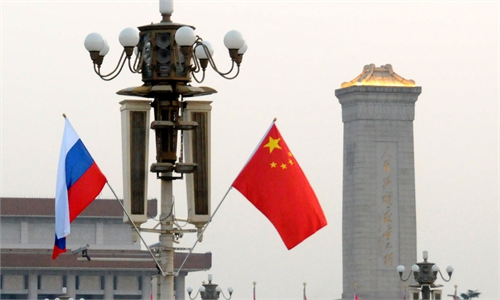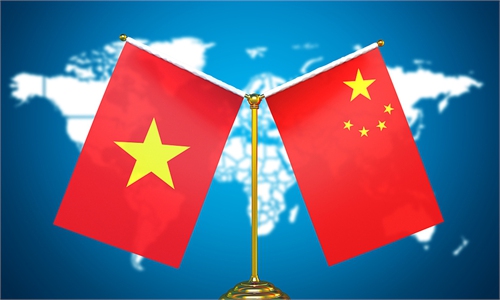US will be disappointed forcing SE Asian countries to get on its anti-China chariot

Illustration: Liu Rui/GT
US Secretary of Defense Lloyd Austin wrapped up his two-day visit to Hanoi on Thursday. He wrote several tweets without mentioning China. Although this doesn't mean Austin didn't talk about China in his meetings with Vietnam leaders, it still shows the US hasn't gotten what it desires from Hanoi. It is also a public show of Hanoi's opposition to taking sides.The US seems to be obsessed with being two-faced. It has on one hand launched a comprehensive smear against China, using confrontational measures such as unreasonable sanctions to provoke China. On the other, it emphasized that it does not "seek confrontation" but is "committed to pursuing a constructive, stable relationship with China."
Such hypocrisy cannot hide the most virulent geopolitical goals of the US' China policies. The Biden administration recently began to attach importance to Southeast Asia, after the US had snubbed the region for a long time. Clearly, the US is now seriously thinking about how to make full use of this "ideal tool" to contain China.
Southeast Asian countries, especially Vietnam, due to their divergence with China over the South China Sea, are viewed by the US as a good leverage against China.
However, relations between China and Vietnam are generally sound. Hanoi views Beijing as an important partner, so in spite of Washington's lure, Hanoi will keep a distance from Washington. Vietnam is reluctant to provoke China.
Every time the US talks with Southeast Asian countries, it tries to create waves in the South China Sea. Austin's visit is no exception. By doing so, the US aims to portray itself as the guardian of regional security and regional countries' interests.
"The US says it does not want Southeast Asian countries to take sides, but it is asking other countries to side with it to jointly contain China. Vietnam is clear about such intent, and it knows better than any other regional countries the risk of being involved in the campaign," Li Kaisheng, a research fellow and deputy director at the Institute of International Relations of the Shanghai Academy of Social Sciences, told the Global Times on Thursday.
Austin said in a speech to the International Institute for Strategic Studies on Tuesday when he was in Singapore, "Beijing's claim to the vast majority of the South China Sea has no basis in international law. That assertion treads on the sovereignty of states in the region."
Such a gesture is welcomed by Hanoi, but this won't make Vietnam to take sides. "Indeed, Vietnam will possibly cooperate with the US to support its claims over the South China Sea. But due to the two countries' various contradictions, Hanoi is unlikely to ride with Washington," Li said.
After Austin's visit to Vietnam, US Vice President Kamala Harris could also visit the country in August. This reflects the increase in weight of Southeast Asia in the US' strategy to contain China. The US knows it cannot realize its goals in a single visit. So a high density of visits also shows the US' strategy to gradually woo Southeast Asian countries.
Nonetheless, the Biden administration's Southeast Asia policy fundamentally serves US strategic competition with China, rather than based on the specific conditions of the region. Such being the case, Washington will never really care about Southeast Asia. Regional countries including Vietnam are aware of this and won't blindly follow the US.
If the US continues to stir up the South China Sea issue and add fuel to the fire, forcing Southeast Asia to get on its chariot against China, it may be disappointed no matter how hard the US manipulates.



